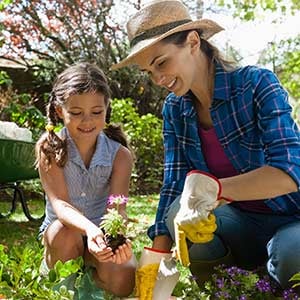 Trying to avoid going to the grocery store? Looking for a new hobby? Hoping to add some fresh flavors to your meals this summer? Look no further! Here is a guide to growing food in Eagle County this summer.
Trying to avoid going to the grocery store? Looking for a new hobby? Hoping to add some fresh flavors to your meals this summer? Look no further! Here is a guide to growing food in Eagle County this summer.
Gardening doesn’t just provide you fresh produce and save you money, it’s a great way to get outdoors and relieve stress. Gardening is so much fun because you can watch the progress of your plants over time, AND you end up with delicious food! However, gardening in Colorado isn’t always easy. Colorado has low humidity, fluctuating temperatures, alkaline soil, dry winds, and intense sunlight that can restrict the growth of plants. The arid Colorado landscape isn’t an easy place for plants to grow. That’s why I’ve compiled some tips for growing mountain fresh produce at high altitude.
Getting Started: Choose Your Garden Location
The first step to growing a beautiful garden is to prepare a site in your yard. Choose a spot in your yard that is warm and sunny. You can either build or buy a raised garden bed and place soil inside the bed, or you can plant your crops directly into the soil. If you are going to plant your crops directly in the soil, it’s important to remove any weeds, till the soil, and check the pH of the soil before planting your crops because Colorado soil tends to be claylike and alkaline, which means the soil is slightly acidic. You may need to add organic matter to your soil to reduce the pH of the soil to 7. If you are plant your crops in a raised bed, use a 1 to 4 ratio of organic matter to soil to ensure the soil has the proper pH and nutrients for your crops.
Which Crops to Choose and When to Plant Them
Since Colorado weather is so variable, beginner gardeners should stick to crops that are hearty and cold-tolerant. Cold season vegetables include broccoli, brussels sprouts, cabbage, carrots, cauliflower, chard, kale, leeks, lettuce, onions, parsley, parsnips, peas, potatoes, radishes, spinach, and turnips. Plants grow best in frost-free soil. It’s best to plant these vegetables after the last frost of the spring so they can reach maturity before the first frost of the fall. In Eagle County the last frost is typically at the end of May and the first frost is at the end of August, with a total of 86 frost-free days. If you are using a raised bed, the soil will heat up faster and later in the season you may be able to grow warm weather crops including beans, corn, cucumbers, eggplant, melons, peppers, squash, and tomatoes.
Planting and Maintaining Your Crops
Once you’ve decided which plants you are going to grow in your garden, you can purchase seedlings from one of the local garden centers or grow the crops from seed. Check the directions on the seed packet to see if you should start the seeds indoors or plant them directly in the soil outdoors. Once you’ve planted your crops, it’s important to remove any weeds from the soil bed and monitor the moisture content of the soil. Since Colorado is so dry, it’s important to water your crops anytime the top inch of soil is dry to the touch.
Hopefully these tips will help you grow a lush and beautiful garden here in Eagle County this summer! Gardening is a great way to eat healthy and exercise while learning a little science along the way. If you’d like to learn more about gardening at high altitude, the local garden centers have great information that can help you learn and make the best decisions for your garden.
Meredith Grupe is a naturalist at Walking Mountains Science Center who loves the Colorado Rockies. In her free time, you can find her hiking, skiing, singing and drawing.
Join Walking Mountains Science Center online for more animal stories, outdoor activities and learning opportunities. Visit: Walkingmountains.org/learnonline








